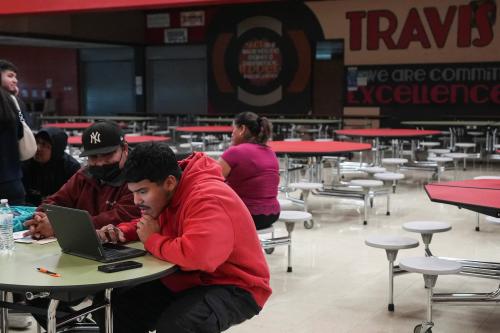“…A lot of the conversation around college education is that tuition is increasing very rapidly, debt is increasing very rapidly and what does that mean for everyone? If we take a bigger step back we want to reframe the discussion around higher education as the potential investment available to people in our economy to help them be more productive in the labor market and to help them have better financial lives themselves. So when we think about higher education, rather than focusing all on the costs like we have been doing with the focus on the narrative about tuition and debt, I think it is important that we kind of refocus and talk about what students are getting from their college degrees. Basically encouraging people to think about this as cost-benefit analysis as they would with any other financial activity in their life.” – Beth Akers
“People who have higher levels of education are far more likely to start or own a business, create jobs in that way; they are far more likely to file a patent, and do other things that are immeasurable contributions to intellectual thought and scientific thought and advancing living standards in important ways. Now quantifying those would be impossible. One that is easy to quantify, that I did in a piece a few of months ago for Brookings, is looking at not just what college graduates pay in taxes but their actual consumption as a direct benefit to local communities and the entire country.” — Jonathan Rothwell
In this episode of “Intersections,” Beth Akers, fellow at the Brown Center on Education Policy at Brookings, and Jonathan Rothwell, former fellow at the Metropolitan Policy Program and senior economist at Gallup, examine the current state of higher education by looking at student debt and its correlation to the value added for individuals with a college education.
Show Notes
Using earnings data to rank colleges: A value-added approach updated with College Scorecard data
What colleges do for local economies: A direct measure based on consumption?
Making college less risky to boost social mobility
More data can make college less risky
The Game of Loans: Rhetoric and Reality of Student Debt
With thanks to audio engineer and producer Zack Kulzer, Mark Hoelscher, Carisa Nietsche, Sara Abdel-Rahim, Eric Abalahin, Fred Dews and Richard Fawal.
Subscribe to the Intersections on iTunes, and send feedback email to [email protected].



Commentary
PodcastCollege education and student debt: Evaluating the investment
June 22, 2016